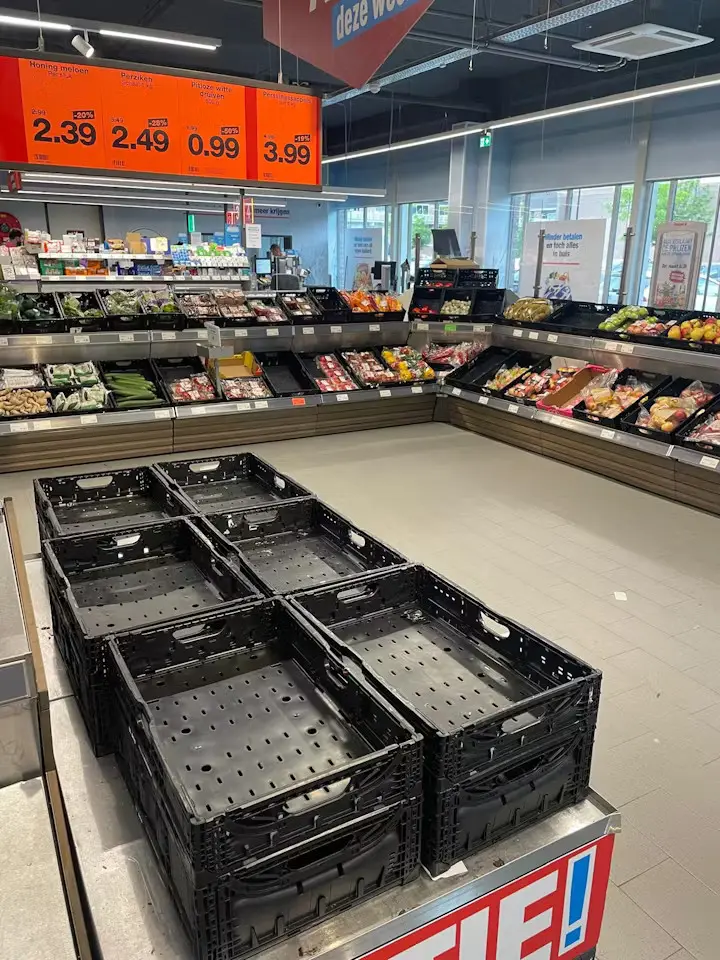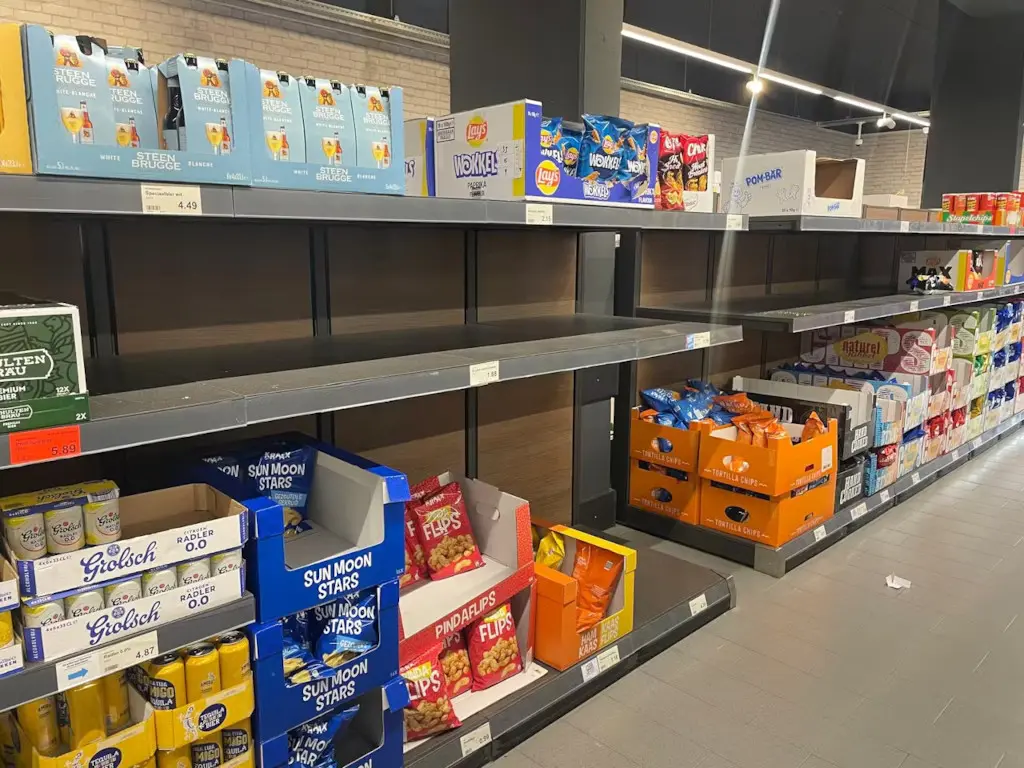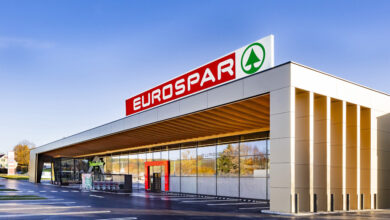Aldi Nord struggles with its new SAP world

In one of the largest technology projects in Europe, Aldi Nord has built a completely new SAP-based merchandise management IT system in the cloud under the decisive influence of Accenture consultants. However, the conversion of the first pilot region was anything but a success: the inventory record in the system no longer worked in the Dutch region Culemborg, resulting in the stores placing orders in the distribution centre on paper again, report project employees.
Last week, Dutch retail newspaper Distrifood also reported on considerable problems with the supply of goods and empty shelves at Aldi Nord in this region its pictures of massive gaps in stock at one store we shown here with the kind permission of the Dutch colleagues. Lebensmittel Zeitung also reported this week on the problems surrounding the piloting of the new IT landscape at Aldi Nord.
The new, now cloud-based world of Aldi Nord IT, which has been gradually activated in the Culemborg region in recent weeks, is known internally as Beat@ATS and essentially consists of SAP S/4HANA as the merchandise management system, the inventory optimisation solution from Relex, a new warehouse management system based on SAP EWM, a new product information management (PIM) system based on Informatica and the cloud solution from GK for the checkouts.
Three-digit million investment
Sinanudin Omerhodzic, Chief Technology Officer (CTO) of the discounter, told Lebensmittel Zeitung in 2021 that Aldi Nord had budgeted a three-digit million Euro sum for the entire renewal of its information technology, which also includes other systems.
Even if it is not yet completely clear why the new merchandise management architecture got off to such a dramatic false start in the Culemborg region, several internal and external project participants independently point to a problem with the completely new item structure in the Informatica PIM and the new inventory record logic in SAP, which is related to a core principle of the discounter: The mixed cases.

Multidimensional inventory record
In order to minimise the complexity of logistics and store processes, discounters use the trick of combining variants of an item at case level into a stock keeping unit (SKU). An mixed case contains different variants – for example strawberry, vanilla, raspberry and cherry yoghurt – but is only ever ordered as a whole by the stores and distribution centres.
Previously, Aldi Nord did not differentiate between the variants at consumer unit level in its inventory record. Different to Aldi Süd, all items in a mixed case had the same article number in the Aldi Nord world. Based on this logic, Aldi Nord has also successfully started to optimise store orders with Relex based on the old SAP system world: In the Netherlands, the discounter has already implemented Relex nationwide.

The challenge of new article structure mapping
In the new merchandise management system based on SAP S/4HANA, Aldi Nord now also wants to map the variants of the mixed cases in the inventory record and has therefore also recreated its product master data with a new structure. However, inventory records and ordering should still be carried out at case level to reduce complexity.
Accenture has therefore developed a solution with which the inventory record levels are to be married, according to the project. But internal and external project members independently warn that this approach is problematic and has not been solved satisfactorily.
Aldi Nord speaks of expected fluctuations
When asked by The Retail Optimiser about the causes of the problems during the changeover, Aldi Nord Group officially only explained that the regional company in Culemborg was testing part of a merchandise management system, “as a result of which there were temporary fluctuations in stock levels in the Aldi stores there, which was to be expected.”
Christian Schneider from Aldi Nord Group Communications went on to explain: “Such tests are standard practice and an integral part of our transformation, which we are continuing unabated and according to plan.”
Reminiscent of Lidl’s SAP disaster
However, the problems in Aldi Nord’s pilot region are viewed with particular concern by insiders and experts. This is also in light of the fact that competitor Lidl had completely cancelled its SAP-based merchandise management system project in 2018 after investing 500 million Euros and is now working on an inhouse development.
Even if the problems in the SAP project at Lidl were different to those at Aldi Nord, the projects still seem to have one thing in common: According to insiders, the SAP solutions have to be introduced very close to the standard in order to run smoothly. Those who adapt the SAP systems to their processes and not the other way round regularly find themselves in difficult waters.
Major influence of Accenture
Last but not least, too many interventions in the SAP standard make retail companies dependent on external SAP consultants. The very consultants who have tinkered with customisations. Aldi Nord has over 100 external SAP consultants in-house for the mega project: most of them come from Accenture, but smaller SAP retail consulting firms are also represented in the project.
Whether at Aldi Nord, Lidl or other retailers: The discussion usually revolves around the question of whether to give up individual processes – which quite often have their justification – for an SAP implementation, or to adapt SAP systems to them. Large consulting firms often boldly promise to adapt SAP to a company’s individual processes – and overreach themselves in the process.
Many suffer from the changeover to SAP S/4HANA
However, industry experts also report that not only Aldi Nord, but all SAP users in the retail sector are suffering considerably under the burden of converting their old systems to SAP S/4HANA. This is also because there are not enough experienced SAP specialists on the market who could be brought onto their own payroll. Although retailers – and discounters in particular – are hiring a large number of new IT employees, these are often job starters with a lack of project experience.
As a result of this situation in the IT team, retail companies often have to rely too heavily on large consulting firms. These often take on large parts of the project management or make promises that they cannot keep.
Sisters go their own way
Last but not least, questions are also becoming louder as to why Aldi Nord and Aldi Süd are going their separate ways when it comes to SAP-based IT modernisation in view of the gigantic sums invested, even though the companies manage to buy food and promotional goods together.




